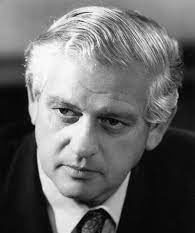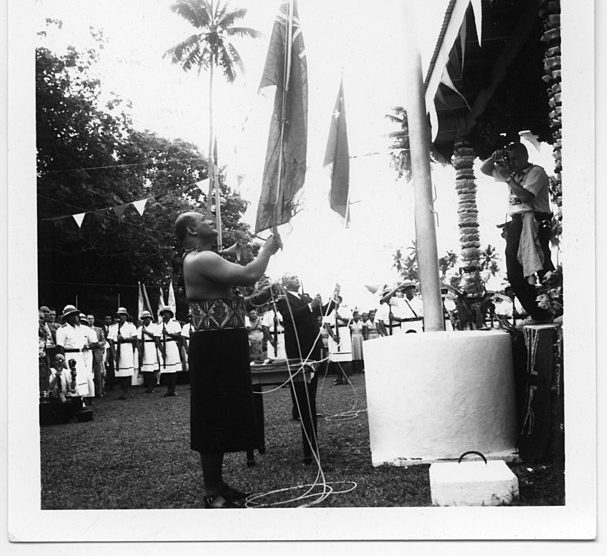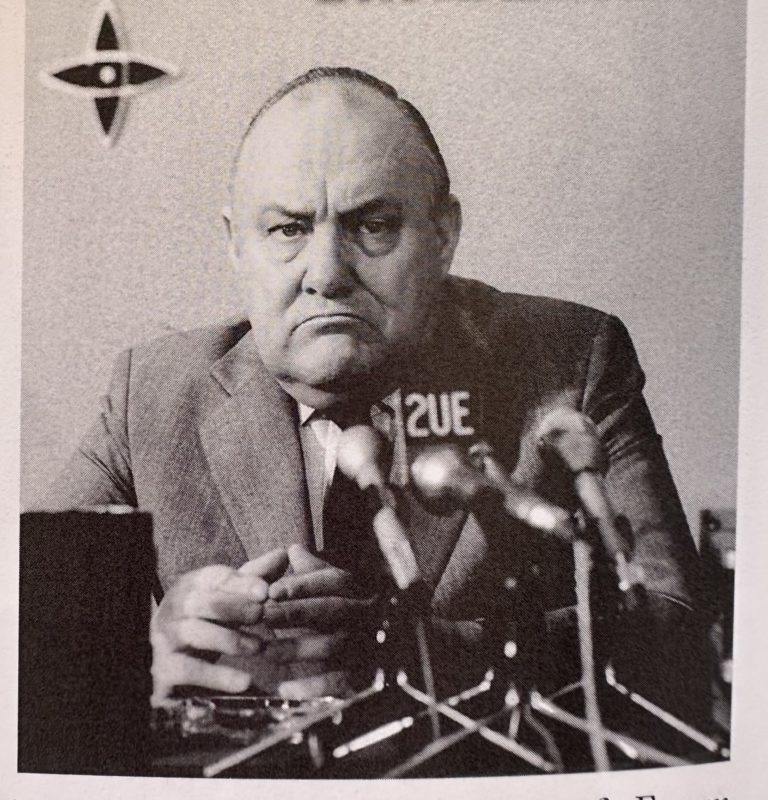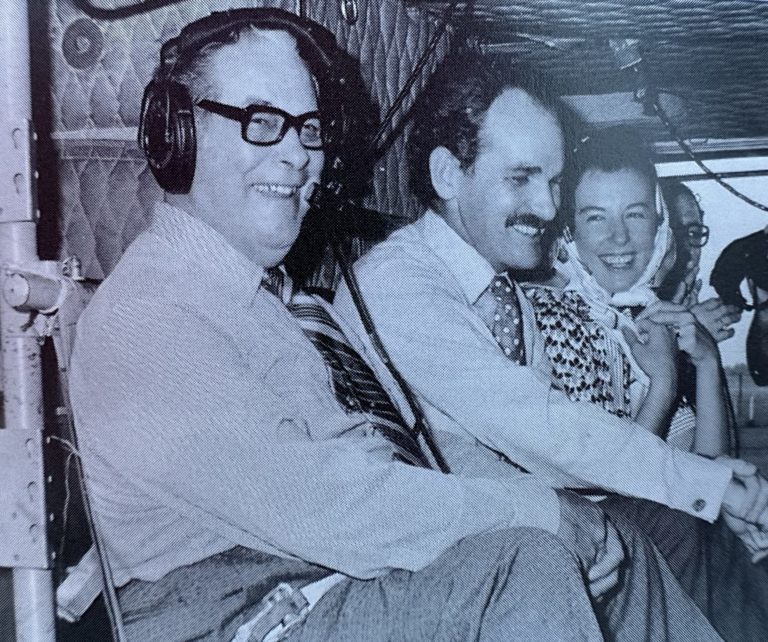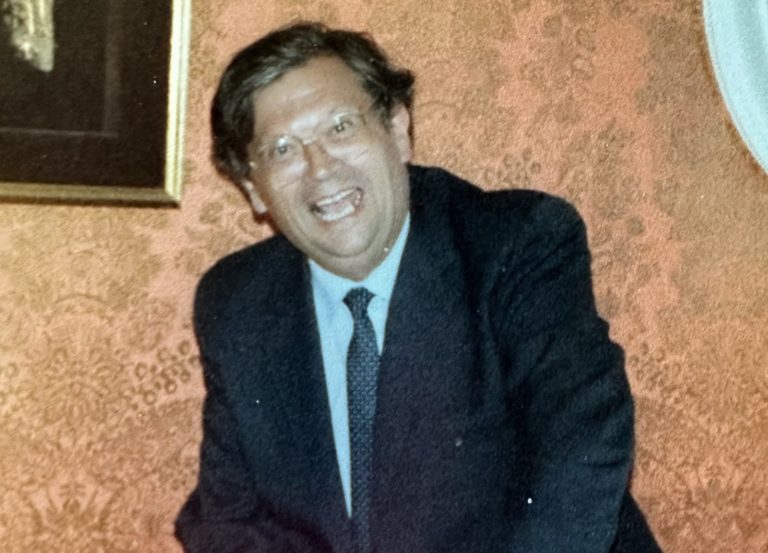Management Maxims of Sir Robert Muldoon
Government for Sir Robert Muldoon was the management of day-to-day affairs. He had no interest in the ‘vision thing’ and became bored with speculation about longer-term policies or indeed the longer-term consequences of the policies he was pursuing. The Advisory Group he established was called the ‘think-tank’ by the press but its importance to him did not extend to any planning. When I asked my predecessor how far ahead the Group looked, Bernard Galvin hesitated then said, “as far as tomorrow afternoon”. As his grip on events declined, the Group dealt more and more with immediate crises and became more of a fire brigade than anything else.
Since he saw government as management he developed a number of thoughts or maxims which summarised and reflected this. His wife, Thea, liked to talk about the problems of housekeeping, soliloquies which he listened to without a trace of interest. But government for him was very close to housekeeping. It’s aim was to keep things ‘tidy’, a favourite word of his. He would hand someone on his staff a paper with the grumble, “This is not tidy” and the unspoken duty was to come back with a workable way of tidying it up.
So he was conservative by instinct, saying famously that he hoped to leave the country no worse than he had found it. The nine years of his Prime Ministership were spent in a heroic battle to preserve the New Zealand he had known when he returned from the Second World War. He was not bothered by the irony that he was struggling to preserve the legacy of Michael Savage and the first Labour Government. He was entirely comfortable with the mixed economy and welfare state he found in post-war New Zealand. It always seemed to him the best that government could do for ordinary people and worth a struggle to preserve, even though it was battle that could not be won and was visibly being lost in the last two or three years of his time in office.
It might have seemed likely that the Labour Party would occasionally be tempted to join or at least sympathise with him in his defence of Savage’s legacy. But the outlook of that Party was changing as its old working-class base withered and was gradually replaced by middle-class, often university-educated, members who were interested in new causes and could prefer foreign policy to domestic issues. In any case Muldoon’s combative manner and rough-edged speech did not encourage looking beyond his style to examine exactly what he was trying to do.
Whatever his instincts, though, he was not a traditional conservative in either thought or principles. There was a distinct strain of populism in his thinking. Looking back to the hardships of his childhood he saw his government’s main purpose as looking after the ordinary people. This was the motive behind his defence of the Savage state and, though it produced some odd side effects like rampant inflation, he meant it. I once drew his attention to the looming need to help the Bank of New Zealand whose capital base had almost been eaten away. He said curtly, “The banks can look after themselves, ordinary people can’t.” The Bank had to be bailed out by the next government.
His foreign policy was also conservative, at least in the sense that it wasn’t ‘progressive’. Again it seemed to be based on instinct rather than system. It came down to those he liked and those he did not. These judgments were based on the “good sense” or lack of it in anyone being discussed. Despite the upheaval of the South African tour, he was uninterested in race and his outlook was as colour-blind as someone of his generation could be.
He admired Lee Kuan Yew and enjoyed his company, though firmly resisting any urgings by his advisers to consider some of Lee’s policies. He was fond of Mrs Thatcher but was curiously indifferent to her ideas. At a dinner for her in London he assured her proudly that he was with the ‘Drys’ who supported her in Cabinet, though his own economic outlook was wetter than the most dripping of the ‘Wets’. He also liked Takeo Fukuda, the elderly Japanese statesman, Ratu Mara, Emeka Anyoku whom he helped become Commonwealth Secretary-General, and George Shultz, the American Secretary of State. He did not like Mrs Gandhi, Malcolm Fraser, Robert Mugabe (before disliking him was fashionable) and Walter Lini whom he treated rudely, pointedly reading a newspaper (which I had failed to remove in time) and turning the pages loudly while Lini was speaking at a Pacific Forum meeting.
He could not apparently suppress these unfavourable judgments, even when they damaged New Zealand’s interests. His description of Jimmy Carter as a ‘peanut farmer’ caused offence which took our diplomacy some weeks to overcome. He was unrepentant, saying to me months later “But I was right about Carter, wasn’t I?” He was right in that his views were shared by most leaders in South East Asia, none of whom would have dreamt of saying so out loud.
He was comfortable in the United States and had a range of influential American friends but I had no sense that he felt any other than practical ties to the country. Driving away from lunch with President Reagan at the White House he said to me, “What did you make of him?” This enquiry was unique and in a man so quick to make up his own mind it suggested some ambivalence. I said that Reagan struck me as someone who held a few simple ideas with great force and he and Mrs Thatcher had the force that could shift political agendas. He grunted.
On the whole he was a good judge of character, as all successful politicians have to be. Like most people in public life his judgments were snap, made within seconds of a first meeting, and given his combative nature his less favourable judgments were often made immediately evident. Weaker Ministers were frightened of him and sometimes tried to deal with him through his department. Some were called into the headmaster’s study and given a caning for their misdeeds, emerging wan and shaken. He had the unlovely habit of crashing at every official who was a newcomer to Cabinet committees to test their nerve. Those who held up won his respect and might in time reach the highest Muldoonian rank, becoming “senior and experienced officials”. One of my unspoken jobs was to warn newcomers to these meetings not to say “With respect, Prime Minister” which he thought was patronising, and pouring them a restorative gin in my room afterwards if they forgot.
Given these quick judgments, he was surprisingly unsure of his ability in making appointments to the constant flow of government jobs. On one occasion, as we pored over for the third or fourth time a list of possibilities for the position of Director of the SIS, he said with something of his innate fatalism, “A third of my appointments do not turn out well”. Quite possibly true of the appointments that anyone gets to make!
If he had read Edmund Burke he would have agreed on the unwisdom of overthrowing any established institution “upon a Theory” but this was simply the way he saw the world rather than a systematic philosophy. If the watchword of the orthodox conservative is ‘hesitate’ that was a word and a concept which did not fit his temperament.
He disliked hesitating even when there was no obvious course to follow. We once puzzled over a difficult problem and I said, almost under my breath, “This is a stinker”. Muldoon cheered up immediately, pointing out that only the hardest problems found their way up to his office on the ninth floor of the Beehive. As we looked at the range of unattractive options before us, Muldoon decided to choose one no more promising than the others, “to get things started, and then once it is moving we can see better how to steer it”.
As part of this urge to keep things moving, he was reluctant to review past decisions even when they were wrong. He once approved a press release about the cool store we were building in Bahrain which I thought, with some justification, would annoy the Bahrainis. I intercepted it and went back to the PM. He looked at it again and said “You think I’m wrong, don’t you?” I made some tactful noise of agreement and he said, “You may be right, but if we stop to look back at everything we will never get on. Let it go”.
This impatience made him careless and indeed indifferent to the range of informal conventions and practices which give a useful flexibility to the parliamentary system. This was a serious weakness because the damage done to unwritten rules becomes difficult to repair. So civilised practices like briefing the Opposition in advance of important decisions and appointments, like the appointment of a new Director of the SIS, fell away. He was horrified when I suggested the Canadian practice of briefing the Opposition on the current structure of government before a General Election to help fill the gap of almost complete ignorance in a new administration.
The majesty of the law held no romance for him. His first row in Government was caused by his impatience with the legal requirements in his haste to bring in his National Superannuation policy. When I once spoke against a possible course because it was against the law, he waved his hand to the dome of the House of Representatives outside the window and said, “Mr Hensley, we keep a little room out there to change the law”.
If not the law, however, even a slight change in political course required careful thought. I brought him a proposal once for some alteration of policy. He was entirely uninterested, looking out the window while I spoke as was his practice when bored. I forgot about it until some months later he said to me, “What did we do about that proposal”. I said a little tartly, “Nothing. You were not interested.” He turned towards me as when about to deliver one of his lessons and said, “Timing is everything in politics. That was not the time, now it is so bring the paper back and we will get on with it”.
For most of the negotiations for a free trade agreement with Australia (CER) he allowed his officials to discuss the detail while withholding his own approval until he could be sure that he could carry the manufacturers and other businessmen with him. While we shuttled back and forth to Canberra he conducted his own negotiations with the Manufacturers Federation, periodically reminding me that he was not committed to anything. Then after a day’s discussion with Doug Anthony, the leader on the Australian side, he decided the timing was right and said to me that evening, “I think we can bring this thing together”.
He claimed that his mentor, Keith Holyoake, had taught him the importance of timing. He told me that when he was preparing his first attempt to overthrow Jack Marshall as leader of the Opposition he went to Holyoake to get his blessing. Holyoake said, “Have you got the numbers, boy. I don’t think you have.” It turned out he hadn’t. Muldoon took more time and did his arithmetic more carefully before going back to Holyoake months later. Holyoake said, “I think you have” and that was that.
He revered Holyoake from whose patient political style he would have greatly benefited if his character had allowed him to. When Sir Keith died he spoke at the state funeral. I knew this would be special and offered to write him a draft. No, he said, this was one he had to do himself. One of Holyoake’s own maxims he passed onto me when we were having dinner in Suva on our way home. He said to me, “You’re worried aren’t you?”, a unique example of thoughtfulness on his part. He then gave me advice passed on to him by his mentor: never worry about what might happen. Half of them never happen at all and the other half appear in such a different shape that you wasted time worrying about them in the first place. “Since then I have never lost an hour’s sleep”, he told me. No-one who worked for him could say the same but it was a help.
Simplifying public issues was another of his maxims. When he spelt out the line he would take on some issue I protested, saying it was much more complex than that. He turned to me again as one dealing with a political novice and said, “Of course it is, but issues have to be presented to the public as black and white, not grey and murky”. Black and white yes, but not false. “It is never a good idea to lie in public – you get found out.”
Whether outlining a new issue or commenting on a familiar one, he believed in being as frank as possible and usually avoided the circumlocutions and careful vagueness which often mark political language. When I gave a background briefing which became all too identifiable on the front page, he gave me some advice that has proved useful: it is always better to speak on the record unless there are very special circumstances. Then he gave a little smile and said, “I bet you won’t do it again.”
Control was of course central to his style of management. He hated currency devaluations as admitting a loss of control, though his economics made them inevitable. When an Australian devaluation made it inevitable that we would follow an urgent Cabinet meeting was called for mid-morning. A short paper had been drafted and, with only twenty minutes before the meeting, I distributed it to Ministers as they arrived. Muldoon was furious: “Don’t you know that only a minister can approve the circulation of his paper?” I did but thought the urgency justified the need for people to have time to read it. His irritation at even this minor erosion of his control was increased by knowing that both the Secretary to the Treasury and I had the previous night been arguing with him for a larger devaluation.
His enormous force of will made him a dictator, not from power but from personality. In his own eyes he was strongly democratic, defending the society he thought was preferred by most voters. He disagreed strongly when once I urged the advantages of a four-year parliamentary term. If he needed to have a wide-ranging authority to do his job, and he thought he did, then it should be kept on a short, three-year leash.
His ‘dictatorship’ was personal because it required a formidable effort to disagree with him, as his Ministers and advisers came to feel. But his willpower was only part of his strength; his mastery of detail and retentive memory was the other part of his power. He read and remembered every detail of every Cabinet paper and all other Government correspondence on the subject. Correcting him on a matter of detail was a perilous path. He gave up almost everything else to do this. He had a surprising knowledge of gardening but ignored the garden he lived in at Vogel House. He took no exercise whatever, and when I once suggested it he said, “Mr Hensley, I take my exercise from the neck up”.
Even on his weekends, normally spent in Auckland, a visitor would find him in a dreary hotel suite sitting on the couch with official papers spread round him. He read constantly and quickly; often a note I sent him would be back within half an hour with his comment and a decision. But he read nothing beyond government papers and related magazines. His intelligence was not matched by an equivalent breadth of education and Lee Kuan Yew was surprised to find that he did no wider reading.
A key part of his mastery was the information supplied by the Advisory Group he established as soon as he came into office (though Bill Rowling, his opponent, said he would have done the same if he had won). Being Muldoon he did not care to be ‘advised’ and referred to it as his Liaison Group whenever he could. On one occasion, when my advice was perhaps too blunt, he rounded on me, “Don’t you Sir Humphrey me”. But he was heavily dependent on the information provided by the seven members of the Group, throughout the week and at a two-hour meeting on Friday afternoons which was carefully guarded in his calendar.
What he wanted from the Group was a warning of problems likely to arise in government department, in business and even in social policy and his aura was enhanced by occasionally speaking to a colleague about a problem in his portfolio of which the Minister was not yet aware. When asked what he most missed in Opposition he said, “officials”. Used fully, they were a major source of his power.
He was not interested in the Advisory Group as a source of political or even emotional support. He valued them for their accuracy and effectiveness, not their views. After the last Group meeting before the 1981 election he commented to me cheerfully that if the election depended on the Group he doubted he would get a majority. He may have been right; I did not know the political views of members any more than he. Though the next Government found it hard to believe, Group members were chosen solely by me on their professional abilities provided they had no known political affiliations with either major party. I simply informed the Prime Minister of my choice and he nodded, except in one case when he said, “I have heard nothing but good of her”. I sensed a Prime Ministerial tease and discarded her after further enquiries revealed links with the National Party.
For people largely in their mid-thirties advising a head of government like Muldoon was a nervous business. There was a pre-exam tension as we filed into his office on Fridays and a sense of relief as we adjourned afterwards to my room to open a bottle of wine and go through the Cabinet papers for the following Monday (in case we had missed anything). In fact they worked with a different Muldoon from the counter-puncher. He sat in his armchair on Fridays and talked to the circle around him as a benign grandfather. Even their rare mistakes were passed over or left for me to sort out. He listened carefully to what they had to report, enjoyed an occasional joke and sometimes shared one of his maxims or lessons in dealing with life’s difficulties. The Group meeting was perhaps his most relaxing two hours of the week, when he didn’t have to confront or face down anybody, and this may have been important for him.
For all his rude and sometimes bullying manner he did not in private have a quick temper and his language was bereft of expletives: “C’est la bloody vie” was the strongest language anyone could remember. When angry he became not noisy, but quieter and more deadly.
He was surprisingly stoical when faced with political adversity. In a hopeful effort to reduce inflation without changing our fundamental economic structure he proposed a control on prices in return for the same on wage claims, the “wage-price freeze”. After two years of laborious negotiations the proposal went to the Federation of Labour annual conference where it was overwhelmingly defeated. It was a major blow for Muldoon but when I told him the figures in the early evening he was silent for a moment and then his only comment was, “After two years of work you would have thought we might have got more votes than that”.
The greatest of his maxims came on another occasion in response to an act of black treachery by someone he had favoured. Even I was shocked. When told he stared out the window for a moment and then he rose to the occasion: “You know, Mr Hensley, there is an awful lot of human nature in people”.
